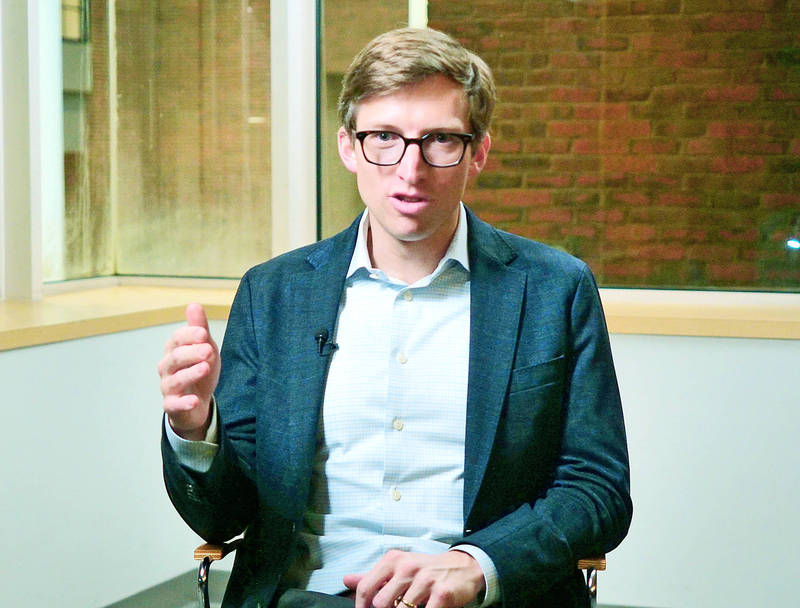《TAIPEI TIMES》 Culture, costs unlikely to be decisive for TSMC in Arizona, academic says

Chris Miller, an associate professor at Tufts University’s Fletcher School of Law and Diplomacy, speaks during an interview with the Central News Agency in Boston, Massachusetts, in an undated photograph. Photo: CNA
/ Staff writer, with CNA
Higher production costs and differing work cultures are unlikely to be decisive in the success or failure of Taiwan Semiconductor Manufacturing Co’s (TSMC, 台積電) expansion into the US, said Chris Miller, the author of Chip War: The Fight for the World’s Most Critical Technology.
In a recent interview, Miller, an associate professor at Tufts University’s Fletcher School of Law and Diplomacy, said that while Taiwan’s successful “model” in the chip industry is unlikely to be reproduced, Taiwanese companies still have to globalize their production in order to remain competitive.
To that end, TSMC has launched plans to build plants in Dresden, Germany, the US state of Arizona and Japan’s Kumamoto Prefecture.
The Arizona project in particular has faced a string of setbacks, including higher-than-expected costs, complaints by US employees of a “brutal” corporate culture, and construction delays at both factories it is building.
Despite these challenges, Miller said he disagreed with the notion that there is anything uniquely difficult about building chips in the US, adding that Samsung Electronics Co and Texas Instruments Inc both operated profitable plants there.
Intel Corp has also built chip plants in the US, and while they have had problems recently, those have mainly been related to design rather than construction, he said.
In terms of workplace culture, Miller said that leading countries in chip production — beginning with the US in the 1950s, then Japan and now Taiwan and South Korea — have always touted their respective work culture as being the best suited for the industry.
“It seems to me that the chip industry shifts too rapidly to have culture be a really effective explanatory factor,” Miller said.
Rather, in order to succeed, the onus is on companies to make sure that their work culture fits, or is capable of “assimilating,” in different geographies, he said.
Miller was also skeptical of the argument that higher production costs in the US would prove a major obstacle.
“TSMC’s success internationally has not been due to cost efficiency. It’s been due to better technology,” he said.
“I think over-focusing on cost underestimates what makes the Taiwanese workforce so effective,” which is related not to low wages, but the fact that they are highly skilled, he said.
Overall, Miller said he was waiting to see how TSMC worked through other challenges related to its US expansion, including making the Arizona facility work within its broader business.
As it does so, TSMC, as well as competitors Samsung and Intel, are all likely to receive assistance in the form of billions of dollars of US government subsidies, stemming from the Creating Helpful Incentives to Produce Semiconductors and Science Act in 2022, Miller said.
新聞來源:TAIPEI TIMES











